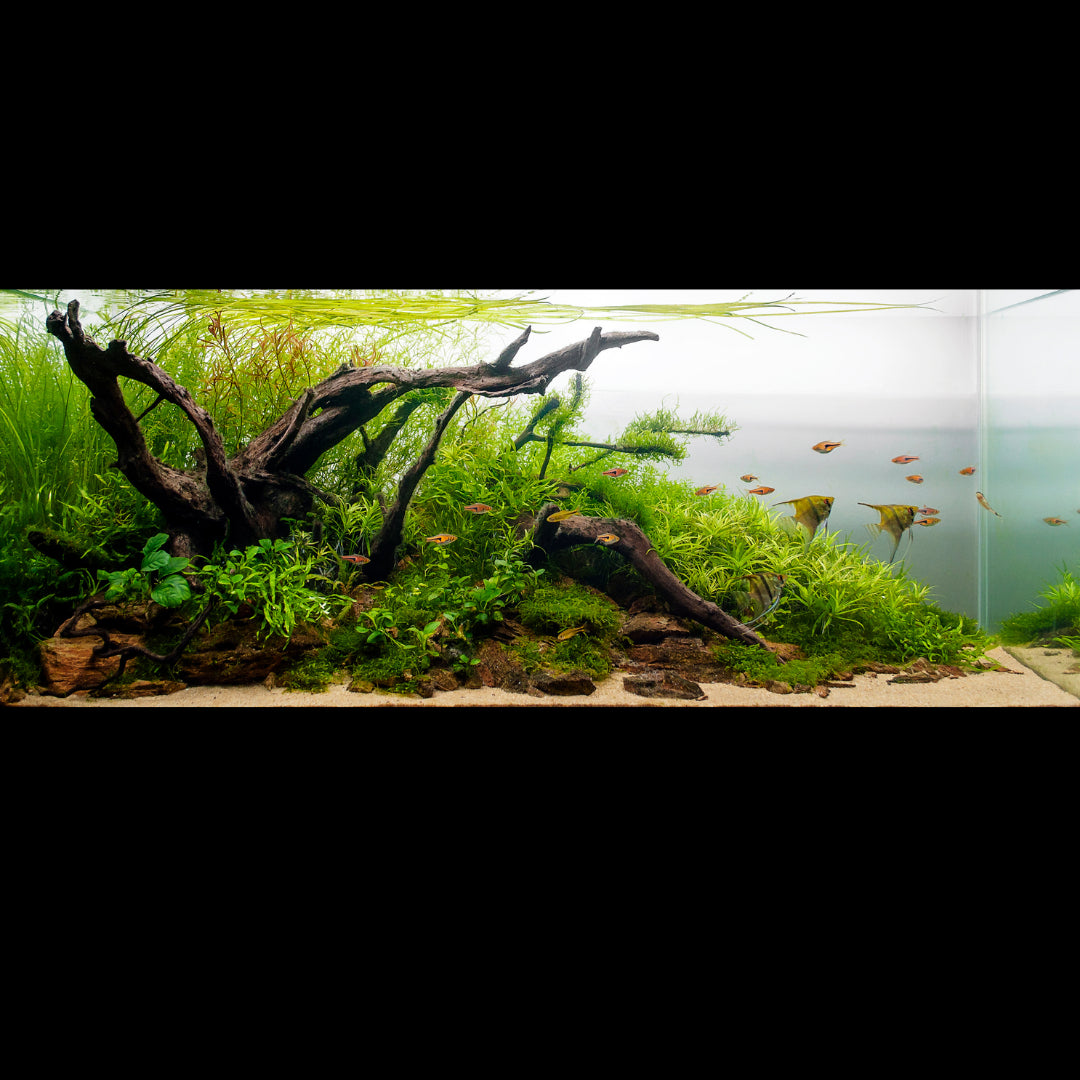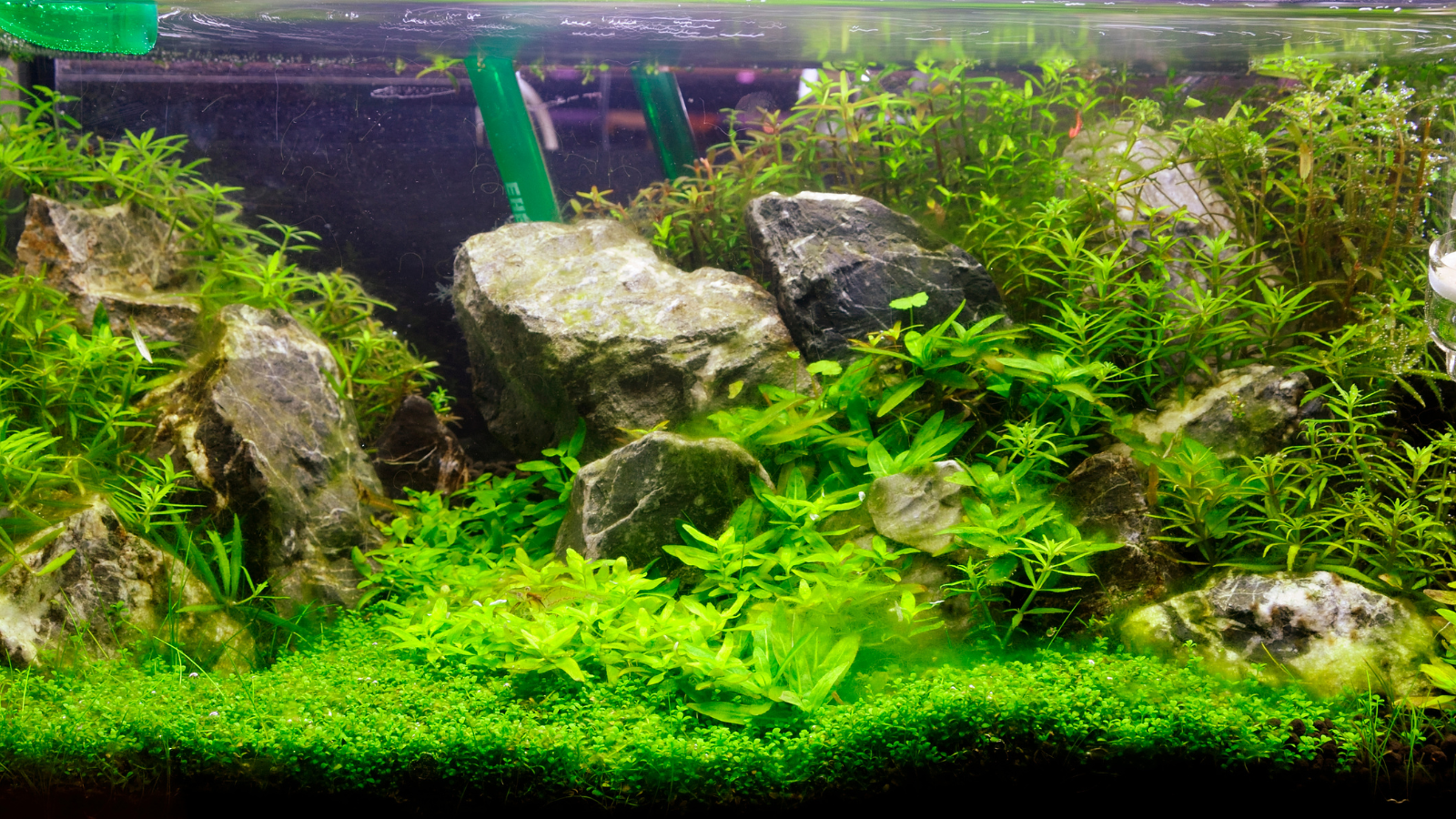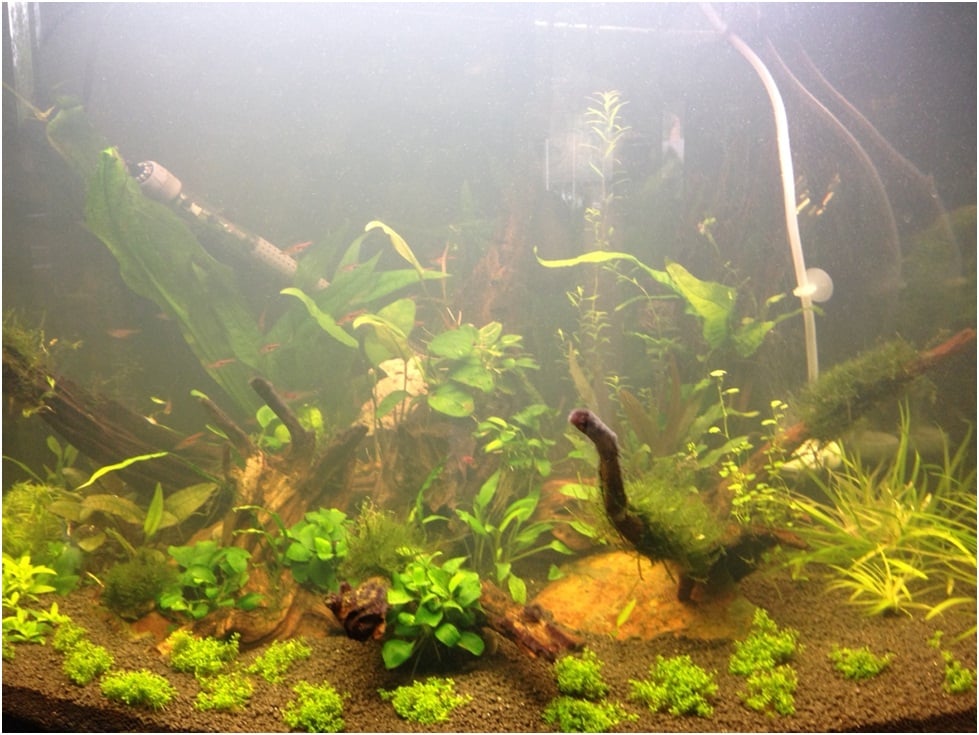
Overcrowded aquarium - Why less fish in your fish tank is better
In the home aquarium, less is more.
People new to the fish-keeping, hobby often make a common mistake. Unsure of how many fish to add to their new aquarium, they keep too many fish in their tanks. This has the knock-on effect of reduced water quality due to an unstable nitrogen cycle and fish deaths. To avoid this problem, we must consider the following things.
-The total amount of all the fish
There was once a false opinion that a single litre of water should be allocated to one centimeter of the length of the fish's body. While this method can be used for small fish, it cannot be applied to larger fish in the same fish tank. On the Internet, you can find tables that show how much space should be devoted to fish of different species. If you haven't already set up your fish tank, we recommend to look into them before buying plenty of fosh from the local fish stores and in consequence- making your aquarium overstocked. It may turn out that only a few fish will fit into your tank.
-Fish species
With each fish species comes a different fish behavior. Fast swimming aquarium fish need more swimming space than very small fish. Territorial fish will defend their territory while aggressive fish will attack any fish that swims into their area. We should be providing enough room for hiding places. Some species of fish produce more nitrogen than others and therefore have more of an effect on the aquarium filter system, so keep much less of them compared to keep the nitrogen compounds under control. To further increase confusion,
-Number of plants
If there are a lot of plants in the tank, they consume nitrogen which means less nitrogen concentration. They also create valuable hiding places, but on the other hand, they take up space for fish. When you have an overstocked tank, space is important, and therefore, finding the balance between both your fish and your plants is vital. Both fauna and flora also affect the water quality so the tank size is very important.
-Type of filtration
If the aquarium has a more efficient filter, you can (although this is not recommended) keep more fish in the tank. The use of an external filter to remove waste is much more efficient than an internal filter. They also take up less space inside, which means more swimming space. Instead of enlarging the cast with other large fish, it's worth keeping some specific fish species which can join the Cleaning Crew, e.g. otos or black mollies. A few fish can support the filtration system of the tank effectivily. Having a nice cleaning-up crew is a true tressure for any aquarist because with its help, fewer algae problems are likely to happen.
-Amount of oxygen
An aquarium that has a large base area can hold more fish than a fish tank that is tall with the same capacity. This is because the large surface area of the water causes better dissolution of oxygen.
- Age of the aquarium
If the fish tank has been set up recently, do not introduce large amounts of fish into it. This will quickly increase the bio load. When adding new fish, start with the smaller fish working up to the large fish, allowing the beneficial bacteria to grow and accommodate each extra demand on the biological filter.
As a general rule, the less animals in the fish tank, the better.
The larger the cast is, the more food the fish need to eat which means more fish waste. Fish waste is a source of nitrogen. If the filter in the aquarium is not efficient enough at breaking this down, the concentration of harmful compounds increases steadily.
Additionally, fish that are kept in aquariums that are too small, are exposed to stress because they have too little space to swim and not enough hiding places. Fish that will grow up to large sizes in the future should not be kept in a small tank, as this can lead to severe stress and in addition, lead to abnormal development.
What are the effects of an overstocked aquarium?
- greater amount of nitrates in the water, which contributes to the growth of algae and poisoning the fish. If the aquarium has been attacked by algae, the first thing you should check is whether it is not caused by too many fish
- fluctuations in other water parameters such as pH which can mean the fish don't get enough oxygen.
- water color change - it becomes less transparent, silt settles on the bottom
- fish dwarfism, stress (which can cause the fish to stop eating), disease, reproductive difficulties
- in extreme cases - the death of fish
How to prevent overstocking of the aquarium?
-Knowledge about new species
When buying fish from the pet store, you must take into account that they can grow significantly and should be selected in terms of the size of an adult individual. A fingernail-sized cichlid can grow to the size of a hand in a few months and cause over stocking. And in consequence- it needs different fish tank.
- Do not accept fish from friends to help them out unless we are absolutely certain we have enough space available in our aquariums
Sometimes there is simply an occasion to take fish from your friend for free or a super discount in the pet store is very eye-catching. So we think- ok, now! Without thinking of the space that the fish needs. Remember that every species has different requirements regarding water quality and social life. This means that e.g. to Betta males can't live together in the same tank because of the agression towards other males.
- Monitor the condition of your water
If this begins to deteriorate this could indicate that you have an overcrowded tank.
- Checking the level of nitrate compounds in the water and recording the results.
When we reach a point that our aquarium is within the correct levels, do not add any more fish unless the nitrogen compound levels do not increase into dangerous levels.
- Regular water changes in the tank, from 10 to 25 percent per week
- Effective filtration
Making sure to provide the best possible filtration can help with any aquarium. If we suspect our aquarium is overstocked, adding additional filtration will help.
- Do not overfeed the fish
The amount and type of food must be adapted to the number of fish. The food portions should be eaten by the fish within a short period of time. Never feed your fish longer than they will consume in a few minutes. Remove any excess or uneaten food to avoid increasing the nitrogen compounds.
In conclusion - an overstocking of the aquarium is one of the main sins an aquarist can commit. Lightly stocked fish tanks with less fish look much better because they have cleaner water and the fish can show their beauty in all their glory. There is no unambiguous method to estimate whether you have an overstocked aquarium, if you have a suspicion, it is worth asking a more experienced aquarist for help. The fishkeeping community is a great place to learn.


